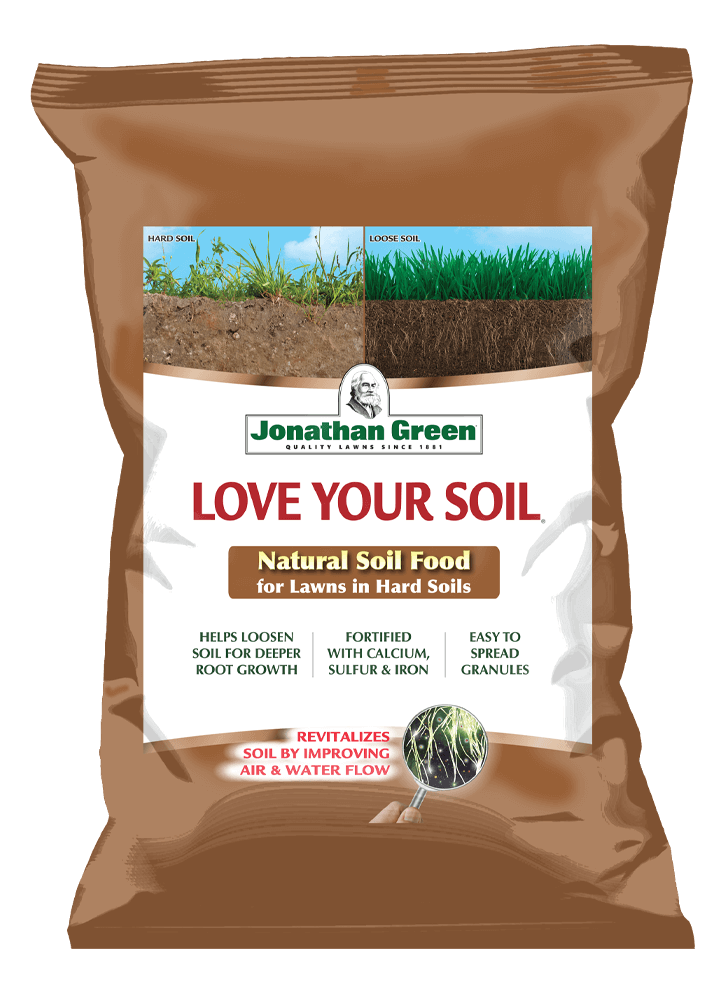How To Test and Treat Your Lawn for Soil Compaction
In order to have a healthy lawn, your soil must be healthy too! Soil health and lawn health go hand in hand. If you find your lawn is struggling to grow, has areas of thin patchy grass, or water is pooling in the low areas of your lawn, it may be time to test for soil compaction. Your soil needs to be loose and porous in order for air, water, and nutrients to travel to your plant’s root system, and for your roots to grow deep. When your soil is compacted, it restricts access to these necessary nutrients and prevents the growth of healthy grass.
What Causes Soil Compaction
Soil compaction can be caused by heavy traffic on the lawn from kids, pets, lawnmowers, or cars. The amount of pressure from prolonged heavy traffic on your lawn causes the soil to become dense and changes the composition of the soil. As the density of the soil increases, the ability to access water and oxygen decreases and prevents roots from growing deep into the soil. This can cause an increased amount of weeds and thinning or yellowing grass. Some other telltale signs of soil compaction are water puddling in low areas of your lawn or water runoff in high areas of your lawn.
How to Test Your Lawn For Soil Compaction
If you think your lawn’s soil may be compacted, you can perform a simple screwdriver test:
- Push a screwdriver into the soil in your lawn
- If you are unable to push the screwdriver up to six inches deep into the soil without difficulty (up to the handle) your soil is compacted
You can also take a sample of soil from your lawn and examine for compaction:
- Remove a portion of soil from the lawn by digging into the soil beneath the turf with a spade
- If it is too difficult to remove, your soil is compacted
Compacted Soil

How to Loosen Compacted Soil
Use a core aerator
One way to loosen compacted soil is to use a core aerator to remove soil plugs and create space for air, water, and nutrients to flow to your lawn’s root system. You can rent a core aerator machine from your local garden center or hardware store. This will only temporarily solve the problem, however, as the holes will eventually fill back in and cause the soil to re-compact.
Add humate-rich soil amendments
For long-term relief from compacted soil, add humate-rich soil amendments with gypsum to provide natural aeration. Love Your Soil® loosens hard compacted soil, increases root penetration, and improves overall grass growth. The beneficial humates in Love Your Soil® help to stimulate soil microbes that break down organic matter and convert it into nutrients for grass plants to access.
Mentioned Products
How to Prevent Soil Compaction
Limit excess traffic
In order to prevent soil compaction in the future, you should be mindful of heavy foot traffic on the lawn, especially if the soil is wet. Avoid driving or leaving parked cars on the grass, as this can cause compaction and prevent access to necessary water and sunlight.
Healthy Soil

Maintain healthy soil
Another way to prevent soil compaction is to maintain healthy soil. Healthy soil should be loose and porous and have an optimal pH level (between 6.2 to 7.0). You should perform soil tests yearly as a regular part of lawn maintenance. Testing your soil’s pH prior to seeding or sodding can help to determine if your soil is too acidic or too alkaline, which can also contribute to poor soil health and prevent your lawn from accessing necessary nutrients. Topdressing your lawn with organic material, such as compost, is another great way to prevent soil compaction. The organic material in compost can help to naturally aerate the soil and improve air and water flow to your lawn’s root system.
The Bottom Line
The health of your soil directly affects the health of your lawn. Soil compaction can cause an increased amount of weeds, restrict root penetration and prevent nutrient absorption. This can prevent overall grass growth and cause long-term damage to your lawn if left untreated. Performing a simple screwdriver test can help to determine if your soil is compacted prior to treatment. The best way to loosen compacted soil is by adding humate-rich soil amendments, such as Love Your Soil®, which will provide long-term benefits to your lawn. For more articles on soil health, check out our Soil Care Library and Soil Care Videos!
